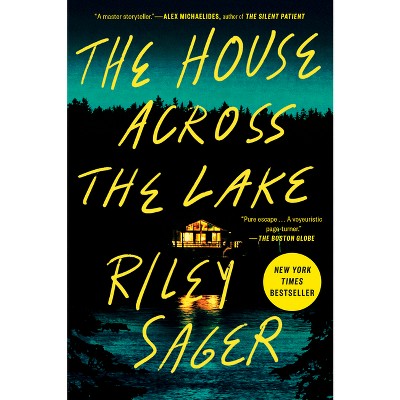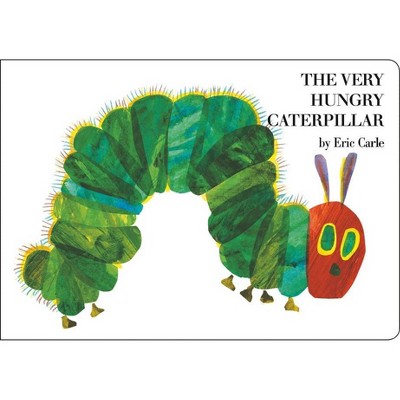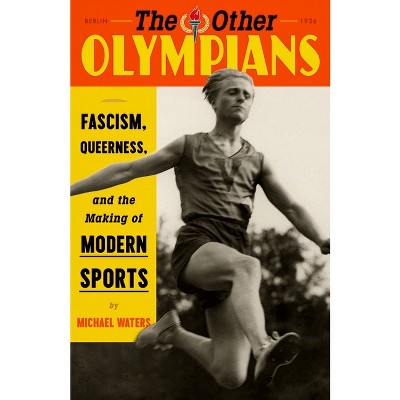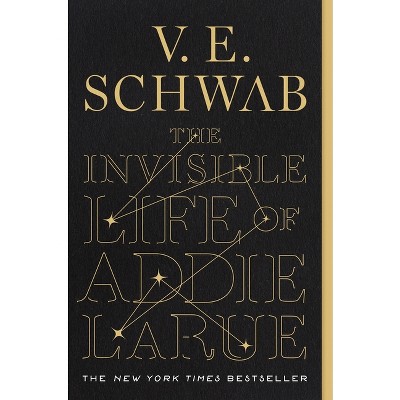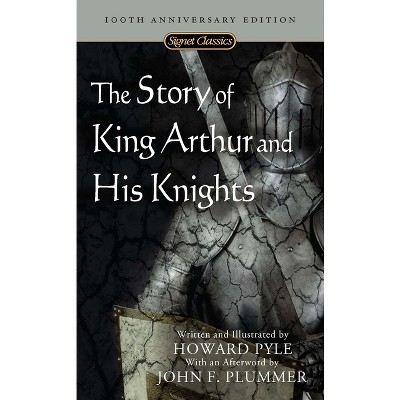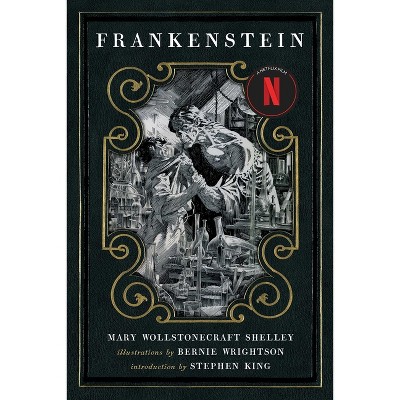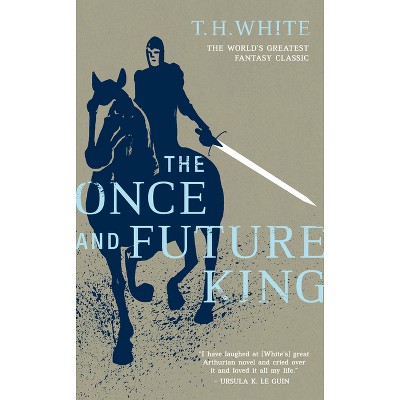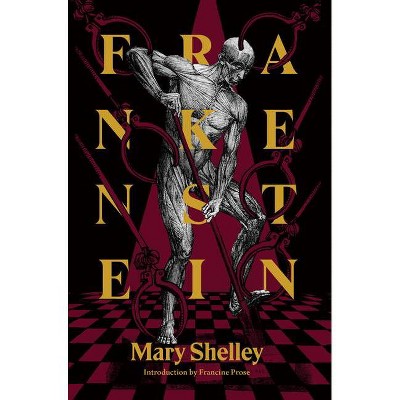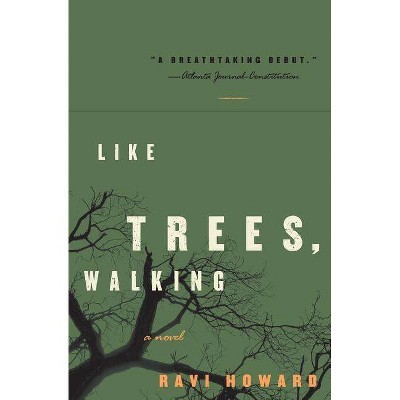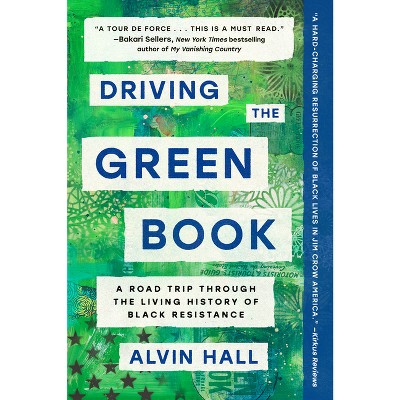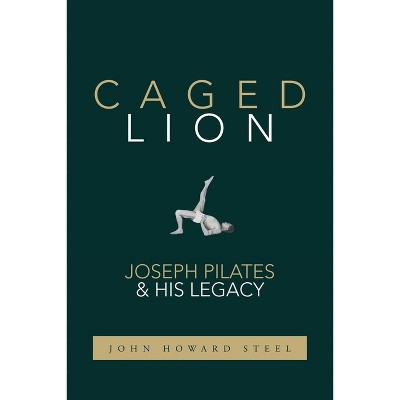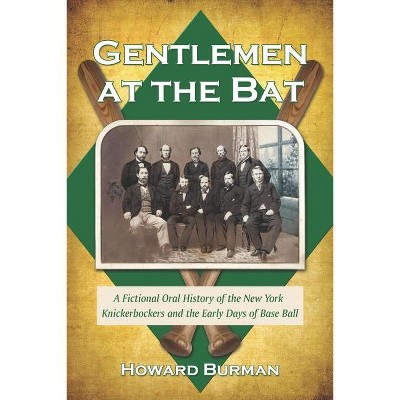Sponsored

Driving the King - by Ravi Howard (Paperback)
In Stock
Sponsored
About this item
Highlights
- An indelible portrait of prejudice and promise, friendship and loyalty, Driving the King is a daring novel that explores race and class in pre-Civil Rights America, played out in the lives of two remarkable men.The war is over, the soldiers are returning, and Nat King Cole is back in his hometown of Montgomery, Alabama, for a rare performance.
- Author(s): Ravi Howard
- 352 Pages
- Fiction + Literature Genres, African American
Description
About the Book
A hardcover edition of this book was published in 2015 by HarperCollins publishers.Book Synopsis
An indelible portrait of prejudice and promise, friendship and loyalty, Driving the King is a daring novel that explores race and class in pre-Civil Rights America, played out in the lives of two remarkable men.
The war is over, the soldiers are returning, and Nat King Cole is back in his hometown of Montgomery, Alabama, for a rare performance. His childhood friend, Nat Weary, plans to propose to his sweetheart, and the singer will honor their moment with a special song. While the world has changed, segregated Jim Crow Montgomery remains the same. When a white man attacks Cole with a pipe, Weary leaps from the audience to defend him--an act that will lead to a ten-year prison sentence.
But the singer will not forget his friend and the sacrifice he made. Six months before Weary is released, he receives a remarkable offer: will he be Nat King Cole's driver and bodyguard in L.A.? It is the promise of a new life removed from the terror, violence, and degradation of Jim Crow Alabama.
Weary discovers that, while Los Angeles is far different from the Deep South, it a place of discrimination, mistrust, and intolerance where a black man--even one as talented and popular as Nat King Cole--is not wholly welcome.
From the Back Cover
Montgomery, Alabama, December 1945. War hero Nat Weary has returned to his hometown, eager to rebuild his life. His childhood friend, the famous Nat King Cole, is also home for a rare performance. During the concert, Weary plans to propose to his sweetheart, and Cole will serenade them with a song.
But Weary's dreams for the future are destroyed when a white man, armed with a pipe, rushes the stage. Leaping from the audience, the former soldier stops the assailant--an act of bravery that leads to ten years of hard labor in prison.
Free at last a decade later, Weary heads to Los Angeles to work for his old friend. It is the promise of a new life removed from the violence and degradation of Jim Crow Alabama. But he discovers that even in the City of Angels, wealth, popularity, and talent cannot protect a black man from discrimination and hate.
Drawn back to Montgomery to lay some unfinished business to rest, Cole and Weary discover a city in the midst of change. A woman named Rosa Parks has inspired blacks to boycott the city's buses--a daring fight for dignity and rights that will eventually grip the entire nation.
"A moving tale about bigotry and the power of friendship." --People
"Heartbreaking. . . . A bold reimagining of [the] civil rights era." --Los Angeles Times
Review Quotes
"[An] imaginative rendering of one of the most brutal forms of torture in American history...Howard reveals, in lilting and haunting prose, the intricacies of caring for the dead...Like Trees, Walking delves into this and other questions, taking us to a historical moment when African Americans could encounter death for daring to be themselves" - Charlotte Observer
"Howard elegantly tells this story. More importantly, he reminds us that the past is not so very past after all." - The Jackson Clairon Ledger
"Howard has a fine eye for detail and knows how to turn a good phrase....Beautiful passages...are often interspersed with sometimes clinical and graphic descriptions....Howard is a talent to watch, and this work introduces us to a fictional universe that we'll definitely want to encounter again." - Washington Post Book World
"Howard's triumph is the nuanced depiction of the unyielding tension running throughout Mobile's black community following the lynching. With such an explosive subject, Howard could have launched an emotional broadside on each page. Instead, he recreates the period's awful dread by blending muted dialogue with his character's nervous mannerisms, making the suppressed emotion all the more volcanic." - Current Magazine
"In his stirring debut novel, Like Trees, Walking (Amistad), Ravi Howard mines the explosive aftermath of one of America's last recorded lynchings...Graced with an acute sense of his characters' lives and times, Howard reveals how racial hatred and the impulse to seek retribution must give way to redemption before one can truly break free from past injustice." - Elle
"Like Trees Walking is a deeply humane, pitch-perfect story that exemplifies what fiction does best: it makes us care about one of the too easily abstracted tragedies of our culture." - Debra Dean, author of The Madonnas of Leningrad
"It is a beautifully wrought, 'quiet' novel and deserves a wide readership." - Tuscaloosa News
"Ravi Howard tells a thoroughly convincing story about the singing star Nat King Cole's best friend.... [A] warmly enveloping book.... Appealing." - Janet Maslin, New York Times
"Gifted novelist Howard...takes readers of all races, ages and classes into the world of pre-civil rights era black people, offering insight on and understanding of one of our country's most tumultuous periods." - BookPage
"By following Howard's characters, we are allowed a sidelong but penetrating glimpse into one of the most important events in American history.... Howard bends history...proving that the past can be best felt through refracted light rather than under the harsh glare of historical fact." - Minneapolis Star Tribune
"A moving tale about bigotry and the power of friendship." - People
"Excellent...moving....Weary is a marvelous character who never becomes didactic. His voice is painstakingly real, precise, and authentic, allowing the reader to drop into the moment as though sitting next to him in the front passenger seat of Cole's Cadillac limousine.... What Howard does so well...is to develop a storytelling perspective out of the limelight, that of someone who is not a leader, but a follower with practical concerns of family, occupation, and personal safety.... Readers who appreciate beautifully written, compelling novels with great depth and humanity will be more than pleased." - Philadelphia Inquirer
"Excellent...moving....Weary is a marvelous character.... Readers who appreciate beautifully written, compelling novels with great depth and humanity will be more than pleased." - Philadelphia Inquirer
" Heartbreaking.... A bold reimagining of [the] civil rights era.... Howard's choices...are daring." - Los Angeles Times
"In an easygoing style, with Weary as his guide, Howard pokes into under-viewed corners of the fight while never losing sight of the humanity of both the cause and its effects." - Milwaukee Journal Sentinel
"The verdict: A breathtaking debut." - Atlanta Journal-Constitution
The value of Ravi Howard's debut novel, "Like Trees, Walking," is that it penetrates to the emotional core of a ghastly event in a way that nonfiction never could...Howard writes as convincingly of that not-long-enough-ago horror as if he were present...clever and effective...notable for its well-turned insights delivered with considerable punch...a powerful and promising debut novel from a talented young writer. - Mobile Register
"Howard brings readers back in time to postwar Alabama, in this velvety smooth fictional memoir. . . . This story about a strong man, living with his head held high, is set against the backdrop of Jim Crow and the Montgomery bus boycott. Howard's prose goes down like the top-shelf whiskey that Weary favors, making for a heady reading experience." - Publishers Weekly (starred review)
"Howard brings readers back in time to postwar Alabama, in this velvety smooth fictional memoir. . . . [His] prose goes down like the top-shelf whiskey that Weary favors, making for a heady reading experience." - Publishers Weekly (starred review)
"Alternating between the cities and Weary's past and present, Howard explores race relations in the pre-civil rights era and the strong ties forged between two extraordinary men." - Booklist
"Powerful.... A personal, poignant portrayal of how the lives of African Americans could be so easily derailed by racial inequality." - Library Journal (starred review)


